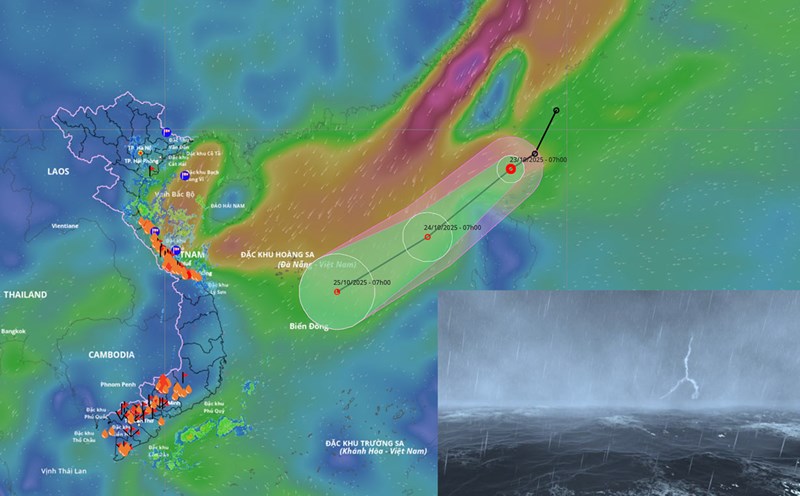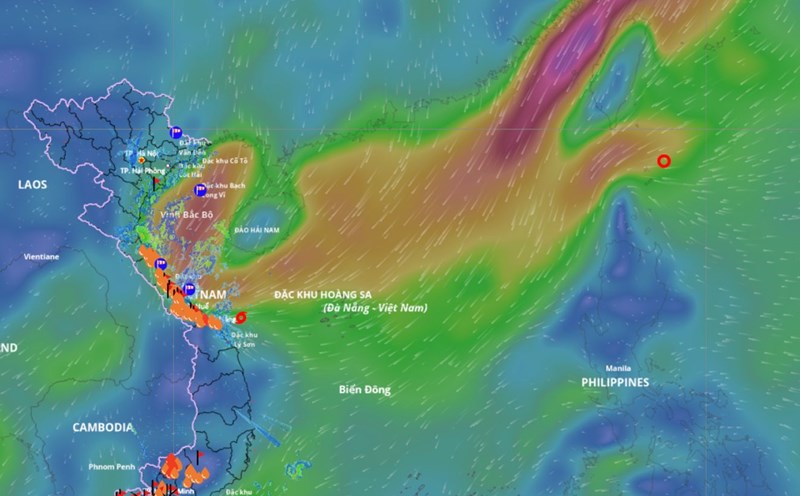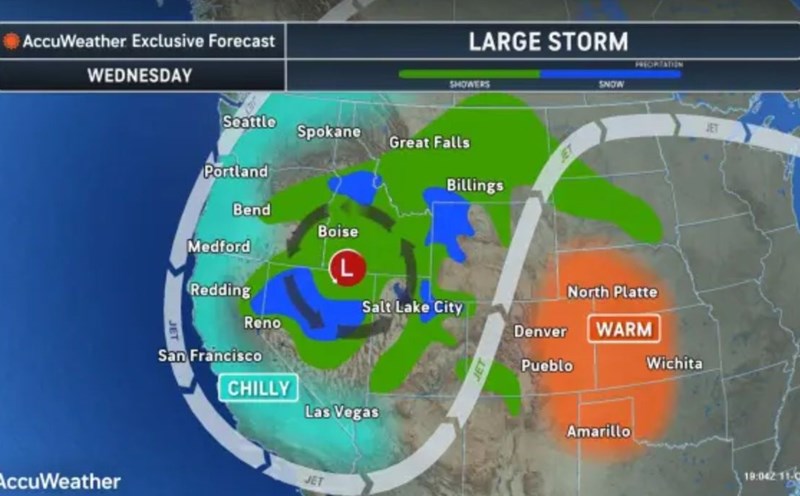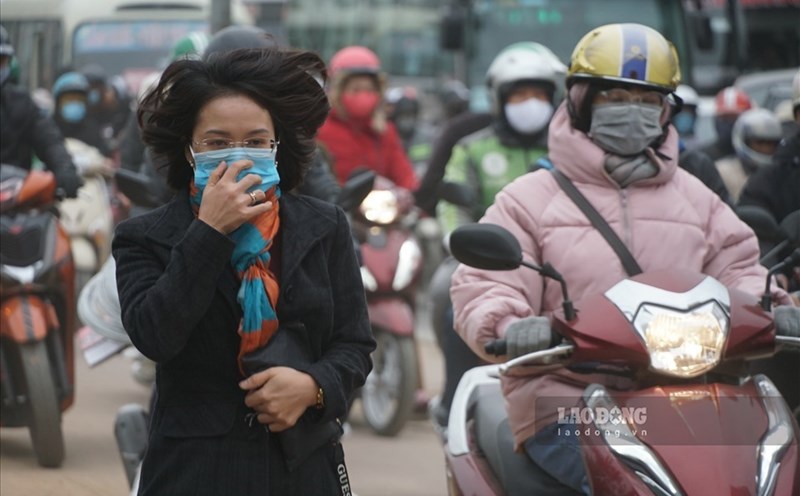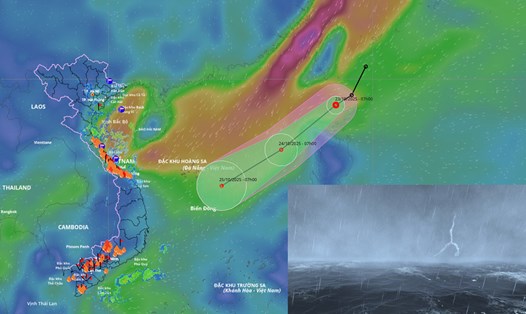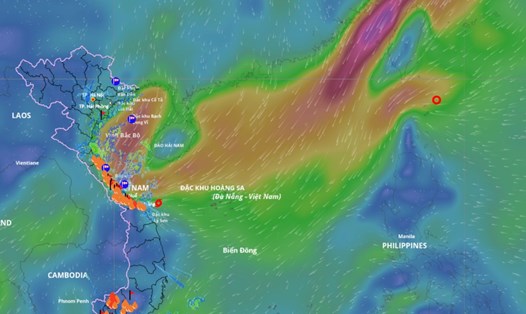Early this morning, October 23, the weather in the North changed, many places had light rain and the temperature dropped further than previous days. Many people thought that winter had knocked on the door. However, from a meteorological perspective, winter has not really begun. So it was cold right in the first cold air waves that showed signs of an early winter.
Reporters of Lao Dong Newspaper discussed this issue with Dr. Truong Ba Kien, Deputy Director of the Center for Meteorological and Climate Research - Institute of Meteorology, Hydrology and Climate Change.
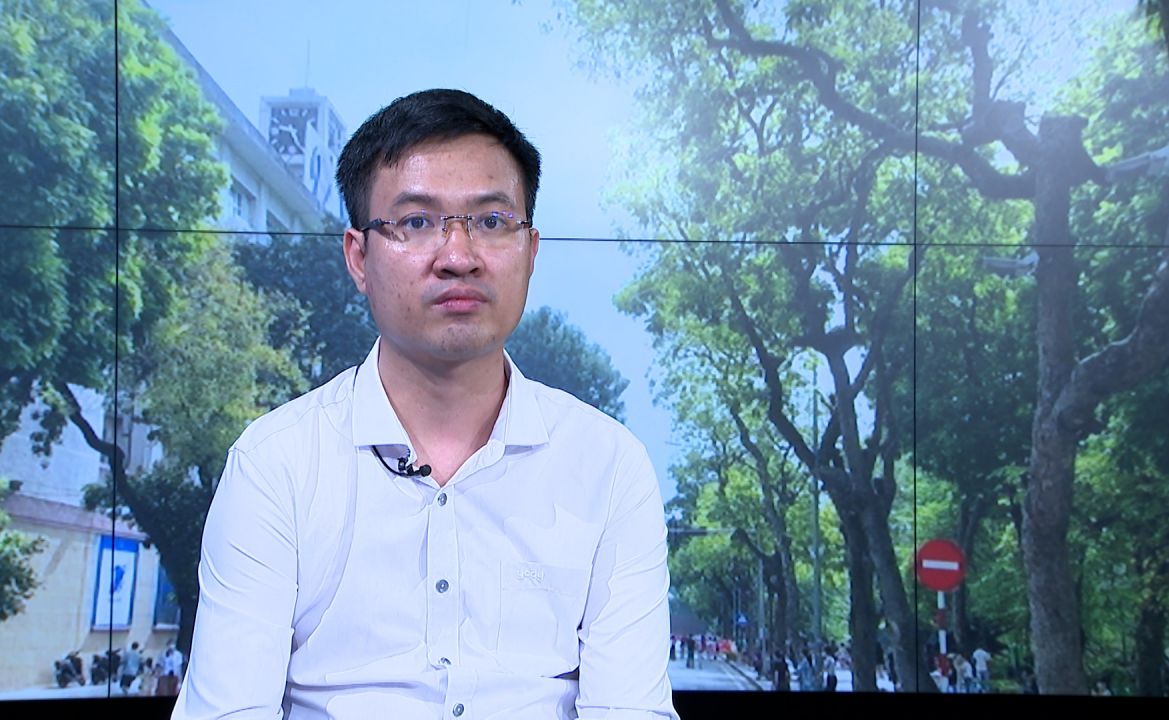
Sir, why did the North suddenly experience light rain and cold after 3 days of cold and drought this morning, October 23?
- After three days of dry weather, light sunshine during the day and chilly at night. This morning (October 23), the North - especially Hanoi - became colder, gloomy, foggy and light rain.
The reason is that the cold air mass covering the area has stabilized and moisturized after a few days. Previously, the North had just gone through a period of warm and humidity, so the air in the lowlands already contained a lot of moisture. When the cold and dry air flows down, the first days are dry and sunny.
In particular, according to atmospheric observation data this morning in Hanoi, the temperature and fog points are almost the same (about 16 degrees Celsius). This is a clear sign of automobile and environmental saturatation.
When low clouds form and cover, the sunlight does not penetrate the ground, causing the daytime temperature to not increase, creating a deep and gloomy feeling throughout the day.
Notably, there is currently no other weather pattern affecting it - no cold air strengthening, no westerly wind trough or southeast wind from the sea.
Therefore, the weather in the North is colder, cloudy and has light rain, not due to the addition of cold air or new monsoon, but due to the pre-hited air background, low temperatures at night causing water vents to stagnate, forming low-lying clouds, fog and light drizzle.
This year, the first cold air waves of the season at the end of October have recorded quite obvious temperature changes. While in recent years, December has clearly felt the change of seasons. So can this year be considered a cold front earlier than in previous years, sir?
- In fact, this year is not winter coming earlier than usual, but the first cold spell is strong and obvious, making many people feel like winter coming early.
Right from the beginning of the year, the Institute of Meteorology, Hydrology and Climate Change, has assessed and forecasted that the 2025 winter monsoon will start to feel approximately the average of many years (ie around mid- to late October) and the cold intensity this year will be stronger.
Thus, not the cold air arrives sooner, but the first cold spell of the year is stronger and the temperature drops further, making people clearly feel that winter is approaching.
Sir, how will ENSO's La Nina phase change in the last months of the year affect this year's winter weather?
- According to the International Climate Centers (NOAA, IRI, JMA), since mid-October 2025, the equatorial Pacific will still be in a ENSO neutral state but tend to leaning towards the cold phase, with the sea surface temperature in Nino 3.4 gradually decreasing compared to average.
The forecast shows a probability of about 65% of La Nina forming in the October - December 2025 period and lasting throughout the 2025 - 2026 winter, before the possibility of returning to a neutral state in early 2026.
For Vietnam, if La Nina really sets up this winter, the weather in the North will often be colder and last longer than usual, especially in December 2025 - February 2026.
La Nina also increases the northeast monsoon, causing drizzle and moist fog in the North and North Central regions to appear early and persistently. On the contrary, the Southern and Central Highlands regions often have dry to late seasons, while the Central region may experience heavy rain late in the year.
This year's winter trend is forecast to be colder than average, with more severe cold spells than last year.
Sincerely thank you!

